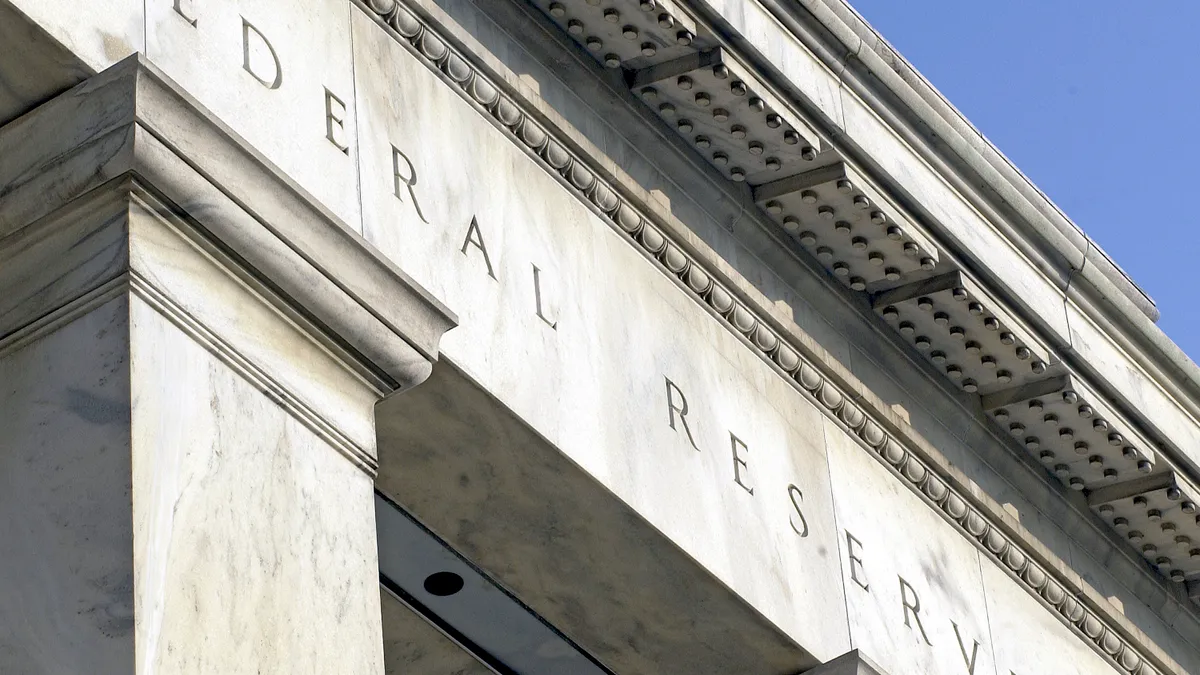UPDATE: Feb. 2, 2021: The Special Inspector General for Pandemic Recovery (SIGPR) is investigating former Treasury Secretary Steven Mnuchin's November decision to claw back unused funds the CARES Act set aside for the Federal Reserve's emergency lending programs, according to a quarterly report released Monday.
The watchdog is also looking into the role Sen. Ted Cruz, R-TX, may have played in persuading the Fed to expand the rules governing the now-defunct Main Street Lending Program so oil and gas companies would be eligible, according to the report. Energy companies accounted for 13% of loans made through the end of November in the Main Street program, according to climate advocates BailoutWatch.
Treasury responded to SIGPR's inquiry about the Fed facilities Jan. 19, the last full day of Trump's administration, Sarah Breen, a spokeswoman for the IG office, told Bloomberg. The stimulus bill former President Donald Trump signed Dec. 27 allayed any concerns about the discontinuation of some Fed facilities at the end of the year and the temporary extension of others, Breen said, adding that the current administration may not agree.
Congressional Democrats and Republicans disagreed on Mnuchin's interpretation of Treasury's powers — it even briefly caused a rift with the Fed — with some claiming the clawback was politically motivated to put the then-incoming Biden administration at a disadvantage in the continuing recovery from the impact of the coronavirus pandemic.
SIGPR has not received a reply to its Jan. 6 letter about Cruz's influence on the Main Street Lending Program, Breen said.
Dive Brief:
-
The Federal Reserve and the Treasury Department agreed to extend four emergency lending facilities that were scheduled to expire by the end of the year, the two agencies announced Monday.
-
The move came ahead of testimony Tuesday and Wednesday by Treasury Secretary Steven Mnuchin and Fed Chair Jerome Powell before lawmakers in both houses of Congress.
-
At the hearings, Mnuchin defended his request that the Fed return $455 billion in unspent coronavirus aid money, a move that initially sparked a rift with the central bank and prompted speculation that the Republican was purposefully putting the money out of the reach of the incoming Democratic Biden administration before it takes office Jan. 20.
Dive Insight:
Monday's move extends through March 31 the Fed's Commercial Paper Funding Facility, Money Market Mutual Fund Liquidity Facility, the Primary Dealer Credit Facility and the Paycheck Protection Program Liquidity Facility, which were set to expire on or around Dec. 31.
But it was Mnuchin's insistence that several other facilities expire at the end of the year — and that the central bank return unspent CARES Act funds — that prompted Democratic lawmakers this week to accuse the Treasury secretary of playing politics.
"You've killed the CARES Act loans that were supposed to be a tool to help smaller businesses and their workers, and buried the money," Sen. Sherrod Brown, D-OH, said Tuesday, addressing Mnuchin at a hearing, according to Bloomberg.
"If I was being political, I would not have extended the four other facilities," Mnuchin told the wire service by phone later in the day. Those programs weren't part of the CARES Act.
Mnuchin testified to lawmakers he was required by law to move the $455 billion in unspent money, saying it was "implausible" that Congress would have authorized him to make loans "in perpetuity."
"It is my intent to completely follow the law, and the law requires the amounts transferred," Mnuchin told Senate Banking Committee on Tuesday. "You must read in this that there was a loophole in the law that I could invest the $500 billion forever."
At the same hearing, Powell backed up Mnuchin's interpretation. "We accept that reading of the law," he said, adding that Congress had given the Treasury secretary "sole" authority over the CARES Act funds and that the Fed and the next Treasury secretary could still access roughly $74 billion in the Treasury's Exchange Stabilization Fund, from which the unspent coronavirus aid would be transferred.
Mnuchin pushed lawmakers to pass legislation re-allocating the unspent funds.
"My single highest priority would be to activate the $140 billion in PPP funds that are not spent that we could immediately send out to the hardest-hit small businesses whose revenue is down dramatically," Mnuchin said, according to American Banker.
Rep. Anthony Gonzalez, R-OH, said Wednesday the pressure to pass a bipartisan stimulus bill needs to come from Democrats. "I hope that they use the leverage that they have to encourage the speaker to put a real, bipartisan bill forward," he said, according to American Banker.
But it was Senate Majority Leader Mitch McConnell, R-KY, who Tuesday rejected a proposed $908 billion bipartisan coronavirus stimulus package that would have included $288 billion in small-business aid such as PPP loans, $160 billion in state and local government relief, and $180 billion to fund a $300 per week supplemental unemployment benefit through March, CNBC reported.
Sen. Tom Cotton, R-AR, at Tuesday's hearing, defended Mnuchin's request to claw back the unspent funds, saying Democrats "would like to have a $454 billion slush fund" for the incoming Biden administration, The Wall Street Journal reported.
While Mnuchin stood firm that his motivation was purely from a legal standpoint, Sen. Bob Menendez, D-NJ, said, "Ending these facilities is not mandated by law."
Powell testified that "any central banker would tell you it's premature to be pulling back support for the economy," but added that that support should come in the form of new legislation.
"We can both acknowledge the progress and point out just how far we have left to go," he said, referring to himself and Mnuchin, adding that forthcoming vaccines signify hope for recovery. "We can see the end," Powell said, according to The Wall Street Journal. "We just need to make sure we get there."














